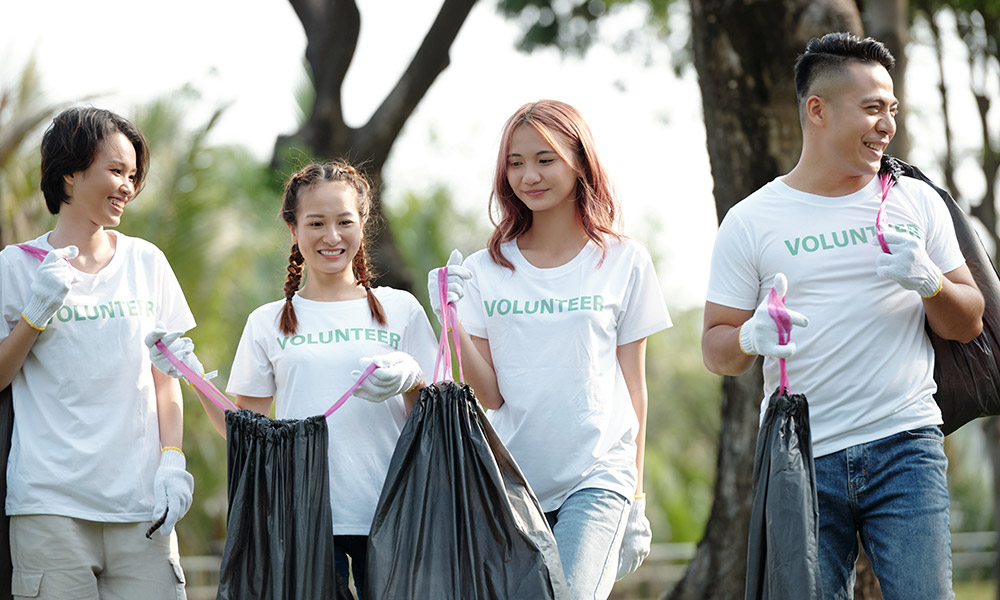
UBCO research determines simple acts of kindness among university students help them believe they can improve the lives of others.
A small act of kindness can go a long way, especially say UBC Okanagan researchers, towards bolstering student health and wellness.
Dr. John-Tyler Binfet, associate professor in the School of Education and Dr. Sally Stewart, associate professor of teaching in the School of Health and Exercise Sciences recently published a study that explores how the inclusion of a kindness assignment in an undergraduate course impacted student perceptions of themselves, their peers and their campus.
While there have been several studies that have assessed the effects of kindness on wellbeing, there has been limited research into how university-aged students understand and enact kindness, says Dr. Binfet.
Thousands of university students returned to class across Canada in September, and Dr. Binfet notes that while living in the times of COVID-19 every act of kindness goes a long way.
“We know being kind yields a number of wellbeing benefits, such as stress reduction, happiness and peer acceptance, and we know mental health impacts learning,” says Dr. Binfet. “The post-secondary environment is often the last training ground to prepare students for life so we want to understand how we can prepare students for optimal mental health as adults.”
For the study, volunteer students provided self-reports to determine the extent they see themselves as kind in online and face-to-face interactions, and how connected they felt to their peers and the campus. The students were then asked to plan and complete five kind acts for one week.
The participants completed 353 kind acts with the main themes of helping others, giving, demonstrating appreciation and communicating. Students that completed at least three of the five planned acts of kindness self-reported significantly higher scores of in-person kindness and peer connectedness.
“This research can help students realize that there is evidence behind how and why people are kind, and that kindness does impact health and wellbeing,” says Dr. Stewart. “It also has an incredible impact for teaching in higher education as it provides insight into where students are at with their practice and understanding of kindness in order to build the groundwork for inclusion of this topic within educational practices and course content areas.”
While there are on-campus wellbeing resources available to students at most post-secondary schools, this research demonstrates that by including wellbeing initiatives into coursework, it’s easier for more students to engage in those activities and receive benefits without added effort. The study also demonstrated that a curriculum-based kindness intervention would be well received by students.
“We found that the students loved the assignment,” says Dr. Stewart. “For some, it helped them realize that kindness is a skill that they can learn to do better and that there are many ways to be kind. For others, it helped them realize that they already do kind things. It reinforced their desire and intention of doing more kind acts.”
For years, Dr. Binfet’s research has focused on elevating the discussion of kindness, and he has previously completed studies on how children and adolescents perceive and enact kindness.
“With this research, we now see alignment in how university students and school-age participants define kindness—to them it means actions that can improve the lives of others. Often, it’s simple things such as being polite and helping others,” says Dr. Binfet.
The research was published in the Journal of Further and Higher Education and supported by a humanities and social sciences research grant.